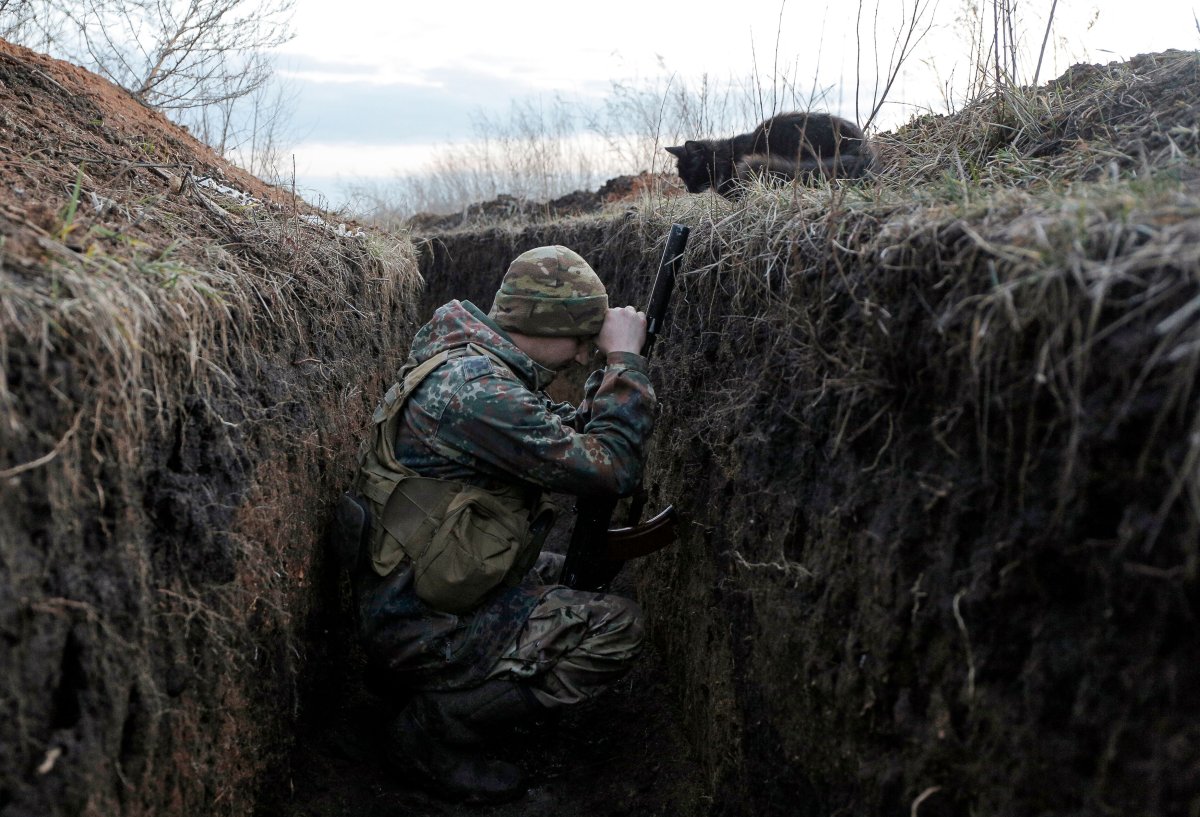Russia has started to expand its defense along its border with Ukraine amid apparent fears of invasion, Britain's Defense Ministry said on Wednesday.
Elaborate trenches systems are being dug by Russian troops in Belgorod, near the border with Ukraine, while the region's governor has announced that is establishing local "self-defense units."

"Trench digging has been reported in Belgorod since at least April 2022, but the new constructions are probably more elaborate systems, designed to rebuff mechanized assault," the U.K. ministry said in its daily intelligence update on the war in Ukraine.
The ministry said there is a realistic possibility that the Russian authorities are promoting defensive preparations within internationally recognized Russian territory to "burnish patriotic feeling."
"However, it probably illustrates some Russia decision-makers' genuine (but false) belief that there is a credible threat of invasion by Ukrainian forces."
The assessment comes after Ukraine was accused by the Kremlin of being behind strikes on two Russian air bases—at the Engels-2 air base in Saratov located some 600 kilometers (375 miles) east of Ukraine, and near Ryazan, on Monday.
Ukraine hasn't claimed responsibility for the attacks but has celebrated them. The New York Times cited a senior Ukrainian official on Monday as saying that the drones used in the strikes were launched from Ukrainian territory.
And on Tuesday morning, a third Russian airfield in the Kursk region near the northeastern Ukrainian border was reportedly targeted in a separate drone attack.
U.S. Secretary of State Antony Blinken has said Washington has "neither encouraged nor enabled" Ukraine to strike targets inside Russia.
On November 29, Edgars Rinkēvičs, Latvia's foreign affairs minister, told Bloomberg on the sidelines of a meeting of NATO foreign ministers in Bucharest that Ukraine should be allowed to strike military sites inside Russia to fend off strikes on its critical infrastructure.
"We should allow Ukrainians to use weapons to target missile sites or airfields from where those operations are being launched," Rinkēvičs said, adding that allies "should not fear" escalation.
Rinkēvičs was referring to mass Russian missile strikes on Ukraine's critical infrastructure in October and November that has caused power outages and blackouts across the country.
The strikes were part of "retaliatory measures" following an October 8 explosion on the Kerch Bridge to Crimea, Alexey Chepa, a member of the Russian State Duma, has said. Kyiv hasn't claimed responsibility for that strike.
Newsweek has contacted the foreign ministries of Ukraine and Russia for comment.
Do you have a tip on a world news story that Newsweek should be covering? Do you have a question about the Russia-Ukraine war? Let us know via worldnews@newsweek.com.
Uncommon Knowledge
Newsweek is committed to challenging conventional wisdom and finding connections in the search for common ground.
Newsweek is committed to challenging conventional wisdom and finding connections in the search for common ground.
About the writer
Isabel van Brugen is a Newsweek Reporter based in Kuala Lumpur. Her focus is reporting on the Russia-Ukraine war. Isabel ... Read more
To read how Newsweek uses AI as a newsroom tool, Click here.








